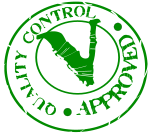Ask MAMA what the Web is

Oslo, Norway, October 15, 2008—Opera Software has led a first-of-its-kind project to create a search engine that tracks how Web pages are structured on the World Wide Web. When released publicly in the coming months, this engine will help browser makers and standards bodies work towards a more standards-driven and compatible Web.
Nálepky:
Opera spearheads project to understand and evaluate how the Web is structured
Opera today announced results from its MAMA (Metadata Analysis and Mining Application) search engine, a brainchild of Opera engineers that indexes the markup, style, scripting and the technology used while creating Web pages. From the beginning, Opera has been a leading innovator and MAMA is proof of the company’s deep understanding of the Web.
The MAMA search engine scours 3.5 million Web pages, and the resulting data can answer questions such as “can I get a sampling of Web pages that have more than 100 hyperlinks?” or “what does an average Web page look like?”—a dream come true for Web developers.
“The Web is fragmented, complex and always evolving. MAMA’s vast database provides us with detailed information about how Web technologies are used,” said Snorre M. Grimsby, Vice President of Quality Assurance at Opera Software. „This is key in our efforts to test and ensure high-quality compatibility, stability and performance of our products, and we want to share it with our peers, so they can benefit from it too.“
MAMA will help Web developers find examples of usage of features and functions, look at trends and gather data to justify technology to their clients or managers. This will also encourage standards bodies to take into account developers’ suggestions about what is happening on the Web in reality and will eventually raise the quality and interoperability of specifications, the Web and browsers.
MAMA can also respond to queries as general as „how many sites use CSS (Cascading Style Sheets)?“ (80.4 percent of MAMA’s URLs), or „how many markup errors does the average Web page have?“ (47), or “how many characters does an average Web page have?” (16,400), to more specific queries such as „what country is using XMLHttpRequest, a critical component of AJAX, the most?“ (Norway, with 10.2 percent, within MAMA’s URL set).
MAMA is up to the task of tackling vague questions that don’t have easy answers, like „how many sites are mobile-ready?“ or „how prevalent is Web 2.0?“ Defining a page as being „Web 2.0“ can cover a variety of sub-topics, including the use of micro formats, RSS, JSON (JavaScript Object Notation) and AJAX among numerous other criteria. MAMA is ready to provide the complex answers to indistinct questions where simple answers do not exist.
MAMA is an evolving project, and it will continue to provide statistics such as the ones above to help monitor trends and provide real-world, practical samples of the Web developer’s “art,” for inspiration and instruction.
For more information on Opera’s MAMA project, please visit: http://dev.opera.com/articles/view/mama/.
About Opera Software ASA
Opera Software ASA has redefined Web browsing for PCs, mobile phones and other networked devices. Opera’s cross-platform Web browser technology is renowned for its performance, standards compliance and small size, while giving users a faster, safer and more dynamic online experience. Opera Software is headquartered in Oslo, Norway, with offices around the world. The company is listed on the Oslo Stock Exchange under the ticker symbol OPERA. Learn more about Opera at http://www.opera.com/.



